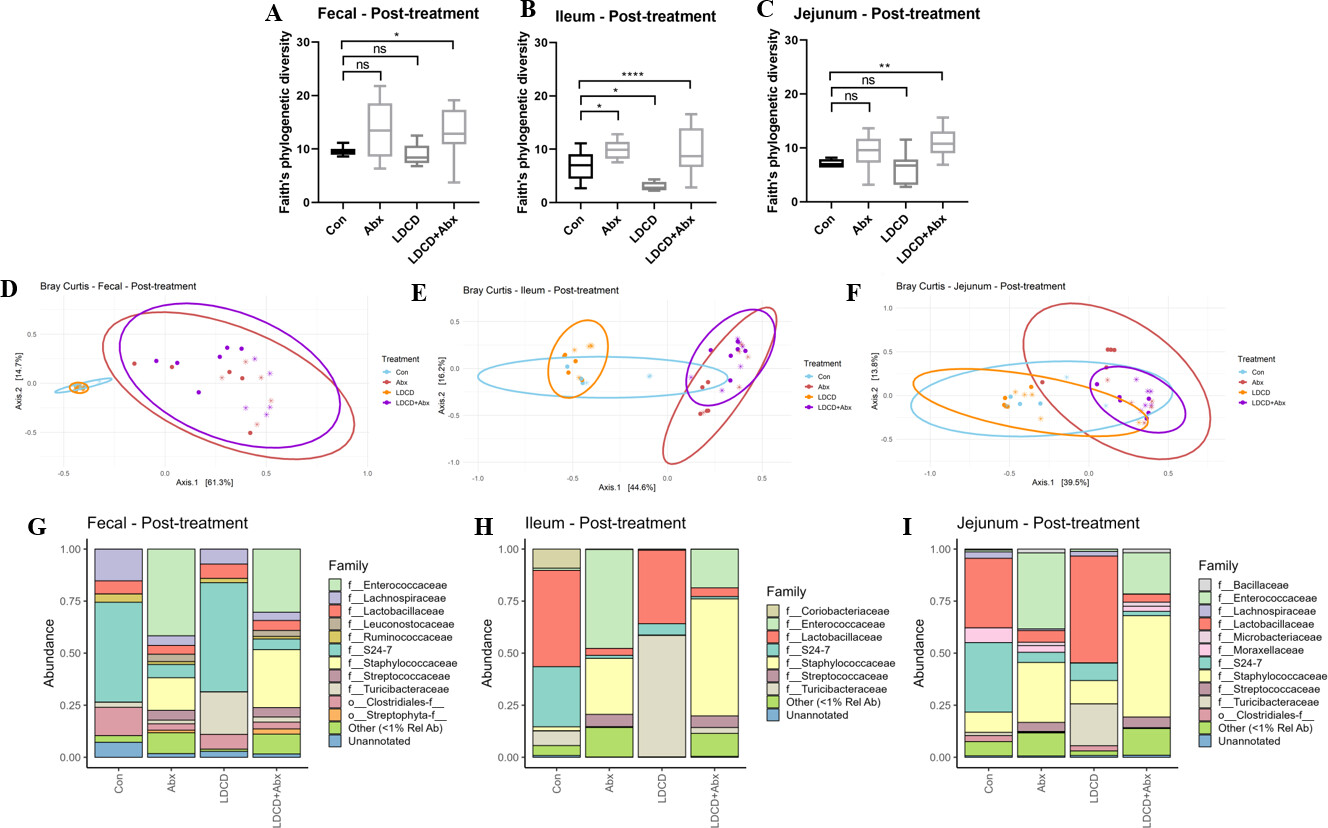
Abstract: Parkinson’s disease (PD) is characterized by motor symptoms and a loss of dopaminergic neurons, as well as a variety of non-motor symptoms, including constipation, depression, and anxiety. Recently, evidence has also accumulated for a link between gut microbiota and PD. Most PD patients are on dopamine replacement therapy, primarily a combination of L-DOPA and carbidopa; however, the effect of these medications on the microbiota and non-motor symptoms in PD is still unclear. In this study, we explored the effects of chronic oral treatment with L-DOPA plus carbidopa (LDCD) on the gut microbiota and non-motor symptoms in males of a transgenic mouse model of PD (dbl-PAC-Tg(SNCAA53T);Snca-/-). To further test whether the effects of these PD medications were mediated by the gut microbiota, oral antibiotic treatment (Abx; vancomycin and neomycin) was included both with and without concurrent LDCD treatment. Post-treatment, the gastrointestinal, motor, and behavioral phenotypes were profiled, and fecal, ileal, and jejunal samples were analyzed for gut microbiota composition by 16S sequencing. LDCD treatment was found to improve symptoms of constipation and depression in this model, concurrent with increases in Turicibacter abundance in the ileum. Abx treatment worsened the symptoms of constipation, possibly through decreased levels of short-chain fatty acids and disrupted gut barrier function. LDCD + Abx treatment showed an interaction effect on behavioral symptoms that was also associated with ileal Turicibacter levels. This study demonstrates that, in a mouse model, PD medications and antibiotics affect PD-related non-motor symptoms potentially via the gut microbiota.

